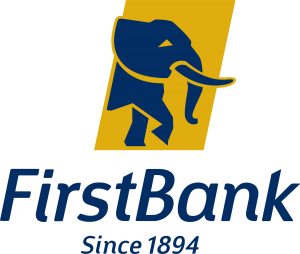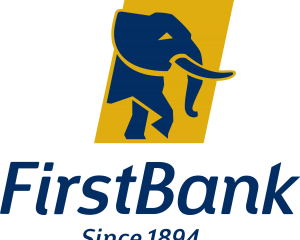Bank
FirstBank: A triumphant Return to the Nigerian Banking Frontline

FirstBank: A triumphant Return to the Nigerian Banking Frontline
The story of Corporate Nigeria in 2022, cannot be complete without a chapter on the incredible performance of First Bank of Nigeria Limited, which saw the hitherto encumbered bank now returning to the top of the ladder of the Nigerian banking industry, amid a harvest of international laurels, writes Festus Akanbi
By December this year, Nigerian quoted companies will begin to upload their full year 2022 results in compliance with the dictates of the principle of disclosures to regulators, investors and customers as enshrined in the act of Corporate Governance.
While the waiting game for the release of the more detailed full-year results continues, analysts said that bookmakers can only assess the current level of profitability, efficiency and recovery of these companies based on their half-year reports which began to hit the various media platforms from July this year.
For FirstBank, a subsidiary of the behemoth FBN Holdings Plc, the 2022 operation year has been characterised by a superlative performance which analysts believed signposts the confirmation of the bank’s return to the frontline of the Nigerian banking industry following its 2021 equally stellar performance.
From its half-year 2022 reports, which show a remarkable turnaround, and the ability of the management of the bank not only to resolve old corporate governance issues but to also return the bank to the path of profitability, it has been proven beyond any reasonable doubt that FirstBank has freed itself from old encumbrances and it is back to its old trajectory of breaking boundaries and being a pacesetter in the Nigerian banking industry.
For instance, analysts who believed that FirstBank’s current excellent performance is a reaffirmation of the new era of a return to greater and better times ahead are quick to point to the bank’s half-year 2022 results which proved the solidity of the financial institution and confirmed that it is back in form as a formidable industry leader.
Reinforcing Quantum Profitability Leap Agenda
For instance, in its half-year 2022 scorecard, FirstBank recorded a 22.6 per cent year-on-year growth in gross earnings to N338.5 billion while net interest income was up 49.3 per cent year-on-year to N152.9 billion respectively.”
The bank’s Managing Director/Chief Executive, Adesola Adeduntan who gave this figure disclosed that “Amidst a challenging operating and dynamic regulatory environment in the half year 2022, the commercial banking group remained focused on executing key initiatives to position the group for improved profitability in the full year 2022. Our half-year results further reinforced our drive towards our ‘Quantum Profitability Leap’ agenda.”
Adeduntan said, “On the back of the impressive growth recorded in our top line, our profit before tax recorded a strong growth of 40.0 per cent year on year to N60.0 billion, whilst profit after tax also grew by 42.3 per cent year on year to N53.3 billion as the bank continues to reap the dividends of the successful restructuring of our balance sheet and revamping of our risk management architecture.”
“We continue to record progress in driving down our non-performing loan ratio which now stands at 5.4 per cent at the end of H1 and we are on target to bring it within the regulatory limit of 5 percent by end of full-year 2022.”
Awards and Recognitions: FirstBank’s Leading the Pack
In terms of recognition, there is no doubt that the ongoing transformation in FirstBank is globally recognised when one considers the harvests of awards and recognitions that are already pouring in for the bank.
Analysts said the awards and recognitions, which include those from the Fitch Ratings and The Banker awards and Euromoney rankings are testimonials of FirstBank’s consistent performance.
Fitch Rerating
Analysts maintained that the current Fitch rerating of FirstBank aligns with ratings of other global agencies (such as S&P: B- with a stable outlook; Moodys: B2 with stable outlook) – a confirmation of what industry peers already acknowledge – back to leading the pack.
On September 16, 2022, Fitch Ratings announced the upgrade of FBN Holdings Plc’s (FBNH) and First Bank of Nigeria Ltd’s (FBN) Long-Term Issuer Default Ratings (IDRs) to ‘B’ from ‘B-‘, and according to the rating agency, the Outlooks are Stable. Fitch has also upgraded their Viability Ratings (VR) to ‘b’ from ‘b-‘.
It explained that the upgrade of the Long-Term IDRs follows that of the VRs, reflecting that corporate governance irregularities publicly raised by the Central Bank of Nigeria (CBN) in April 2021, including two longstanding related-party exposures, have largely been addressed and therefore risks to capitalisation have receded, helped by strong internal capital generation since the irregularities were raised.
Governance Issues Laid to Rest
Following its monitoring of the Bank’s corporate Banking endeavours within the last year, the rating agency gave FirstBank a clean bill of health saying the bank’s governance irregularities have been addressed and according to the management of the bank, “the two related-party exposures highlighted by the CBN, which included equity and credit exposures to two companies of whom FBNH’s previous chairman was also chairman, have largely been disposed of and repaid. Fitch understands from management that FBNH and FBN have not been subject to penalties about irregularities raised by the CBN in April 2021 and no further irregularities have been raised.”
It also attests to the solidity of the bank, affirming that FBN is the third-largest bank in Nigeria, representing 11% of domestic banking-system assets at the end of 2021.
Another reason for the high rating is the fact that the bank’s improved asset quality since FirstBank’s impaired loans (Stage 3 loans under IFRS 9) ratio has declined significantly.
FirstBank also boasts of a Stable Funding Profile. For instance, FBN’s customer deposit base (76% of total funding at end-1H22) comprises a high share of retail deposits (64% at end-2021) and current and savings accounts (81% at end-1H22), supporting funding stability and a low-cost of funding. Depositor concentration is fairly low. Liquidity coverage is comfortable in local and foreign currencies.
Bankers Magazine: FirstBank Best Performing in Nigeria
It is also not a coincidence that FirstBank was rated first among its peers in Nigeria by Bankers Magazine, a publication of the Financial Times.
The Top 100 African Bank Rankings 2022 recently released by The Banker shows FirstBank leading the Nigerian table in four areas, the highest achieved by any Nigerian bank; only FirstBank leads in four areas. The rankings, based on the end of year 31 December 2021 audited financials of all banks in the Top 100, reveal FirstBank’s ranking as number one in Nigeria in terms of Overall Performance, Profitability, Efficiency and Return on Risk.
The magazine, which explained that its Top 100 African Banks ranking for 2022 demonstrates a broad return to stability by African banks after a torrid year for the continent’s largest lenders placed FirstBank among other banks in Nigeria because it happened to be the only bank that led in four areas.
First Bank of Nigeria Limited leads its peers in fifth place overall, displacing Guaranty Trust Bank, now in seventh place. Access Bank ranks in the eighth position, with Zenith Bank in 10th place.
Euromoney Rankings: FirstBank, Market Leader
In addition, in 2022, Euromoney Market Leaders, an independent global assessment of the leading financial service providers conducted by Euromoney Institutional Investor Plc crowned FirstBank as a market leader. The bank was rated as a tier one bank in the areas of corporate and social responsibility (CSR).
Not only that, but FirstBank also emerged as a market leader among the tier-one banks in the area of Environmental, Social and Governance (ESG).
In the area of corporate banking and digital solution, FirstBank was highly regarded while it was crowned as a notable player in SME Banking for the period under review.
FirstBank was named “Best Bank Brand in Nigeria” for six years in a row – 2011 to 2016 – by The Banker magazine of the Financial Times Group; it was awarded “Most Innovative Bank in Africa” in the EMEA Finance African Banking Awards 2014; it has clinched the “Best Bank in Nigeria” award by Global Finance Magazine 15 times and the “Best Private Bank in Nigeria” by World Finance Magazine seven times. Some other recent awards received by the Bank are “Best Banking Brand Nigeria, 2019” by Global Brands Magazine; “Best Mobile Banking App – Nigeria, 2019” by Global Business Outlook and “Best Financial Inclusion Program – Nigeria, 2019 by International Investor.
In the words of FirstBank’s CEO, Dr Adesola Adeduntan, ‘what all these current ratings and recognitions demonstrate is that FirstBank is strongly back on course! Knowing this is only the beginning of a new era of return to the trailblazing position and that better times lie ahead we encourage our customers and other stakeholders to keep believing and keep standing by us.’
Banking on Robust Customer Service Network
Through the last 128 years of its operations, FirstBank has played a leading role in utilising its robust customer service network and digital banking architecture to support its customers – cutting across diverse cultures, tribes and races beyond the shores of Nigeria – in meeting their individual and business needs.
First Bank of Nigeria Limited operates as a parent company, with the subsidiaries FBNBank in the Democratic Republic of Congo, Ghana, The Gambia, Guinea, Sierra Leone and Senegal; FBN Bank UK Limited in the United Kingdom with a branch in Paris; First Bank Representative Office in Beijing to capture trade-related business between geographies. FirstBank also operates First Pension Custodian Nigeria Limited, Nigeria’s foremost pension custodian. The teeming customers of the First Bank Group are serviced from a network of over 700 business locations across Africa.
Culled from ThisDay Newaspaper
Bank
Alpha Morgan to Host 19th Economic Review Webinar

Alpha Morgan to Host 19th Economic Review Webinar
In an economy shaped by constant shifts, the edge often belongs to those with the right information.
On Wednesday, February 25, 2026, Alpha Morgan Bank will host the 19th edition of its Economic Review Webinar, a high-level thought leadership session designed to equip businesses, investors, and individuals with timely financial and economic insight.
The session, which will hold live on Zoom at 10:00am WAT and will feature economist Bismarck Rewane, who will examine the key signals influencing Nigeria’s economic direction in 2026, including policy trends, market movements, and global developments shaping the local landscape.
With a consistent track record of delivering clarity in uncertain times, the Alpha Morgan Economic Review continues to provide practical context for decision-making in a dynamic environment.
Registration for the 19th Alpha Morgan Economic Review is free and can be completed via https://bit.ly/registeramerseries19
It is a bi-monthly platform that is open to the public and is held virtually.
Visit www.alphamorganbank to know more.
Bank
Separating Fact from Confusion: What Nigerians Need to Know About the 7.5% VAT on Banking Service Fees

In recent weeks, digital-banking customers and social media, especially on Twitter have raised concerns about deductions labelled as “VAT” on transfers and other charges.
Some dangerously false narratives, which when you take a critical look, you’ll clearly see that they have been orchestrated and sponsored by malicious elements, have given the impression that the 7.5% Value Added Tax (VAT) is a new or arbitrary charge introduced by fintechs, or that it applies to the amounts customers send. These claims are misleading and deserve careful clarification which is the purpose of this piece.
First, it’s important to understand how VAT works in Nigeria’s financial sector today. VAT on fees and charges for financial services has long been part of Nigeria’s tax system. The then Federal Inland Revenue Service (FIRS) had issued information circulars on March 31, 2021 where it stated that VAT on Financial Services (Circular No. 2021/04) that most fees, commissions, and charges by financial institutions (banks, insurance companies, brokers) are subject to 7.5% VAT.
This justifies a recent advertorial the Nigeria Revenue Service (NRS) which stated unequivocally that VAT was not newly introduced on banking service charges by recent tax reforms, and that it did not impose a new tax obligation on customers in that regard.
However what was left unsaid in that publication was that on the 12th of December, the tax agency had written to all financial institutions and payment gateways based on past meetings with operators that following from the new Tax Act, they were reminded of their mandatory obligations to collect, deduct and remit VAT at the prescribed rate.
The Agency then gave an 18- day grace period to all players to configure and align their systems while directing full compliance with the directive with effect from January 19, 2026. And so, some fintechs sent messages to their customers in the spirit of clarity and transparency.
It must be said that what has changed is that in a bid to widen the tax net, microfinance banks and fintechs who were not obligated to deduct and remit said VAT before now, have now become compelled to do so. The enforcement and standardised collection of VAT across banks and fintech platforms including mobile transfers, USSD transaction fees, and card issuance fees with compliance deadlines issued by tax authorities. So why anyone would vilify any financial institution obeying the laws of the land beats my imagination.
For those who have raised questions around transparency and wrongly suggesting that fintechs are suddenly imposing new, unexplained costs on users – as it has been explained above, this is a matter of regulatory compliance, not a lack of transparency or customer exploitation. These VAT deductions are not new fees created by the companies themselves, and providers are not arbitrarily raising their prices.
In closing, two things that everyone must bear in mind as we move forward in this new tax climate – all stakeholders including fintech platforms and regulators must communicate better and clearly. Nigerians must refrain from peddling unsubstantiated claims and malicious narratives, it has no benefits for anyone and erodes trust in systems.
Bank
FirstBank Introduces Exclusive 500-Seater Bleacher at Carnival Calabar & Festival 2025

FirstBank Introduces Exclusive 500-Seater Bleacher at Carnival Calabar & Festival 2025
Lagos, 26 December 2025 – FirstBank, West Africa’s premier financial institution and financial inclusion services provider, has officially announced its sponsorship of the Carnival Calabar & Festival 2025, unveiling a landmark addition set to redefine the carnival experience — the first-ever private premium seating area at the event.
The highlight of FirstBank’s participation is the construction of a 500-seater premium bleacher, designed to provide comfort, safety, and an elevated viewing experience for carnival enthusiasts.
Speaking on the sponsorship, the Acting Group Head Marketing and Corporate Communications, FirstBank, Olayinka Ijabiyi, noted that the carnival aligns with the Bank’s First@Arts initiative, a platform dedicated to supporting the creative arts value chain across Nigeria. He said, “We recognise the transformative power of the arts, including carnivals, in inspiring people and strengthening national unity. For more than 131 years, we have supported platforms that promote self-expression, social reflection and cultural exchange. Our investment in the Carnival Calabar & Festival demonstrates our commitment to preserving the nation’s rich cultural heritage through First@Arts.”
“As part of our sponsorship this year, we are introducing the first-ever private 500-seater premium bleacher to further elevate the carnival experience. This exclusive seating is designed to provide exceptional comfort and an unforgettable viewing experience for attendees,” Ijabiyi added.
The Chairman of the Cross River State Carnival Calabar Commission, Gabe Onah, also commented on FirstBank’s sponsorship. “FirstBank’s involvement is a strong demonstration of private-sector support for culture and tourism. This partnership not only enhances the overall quality of the carnival but also strengthens its global appeal,” he said.
The Carnival Calabar & Festival 2025 is officially marketed by Okhma Global Limited, the appointed Official Marketer responsible for brand partnerships, promotional engagements, and ticket sales. Okhma Global Limited has partnered with the Cross River State government in delivering Carnival Calabar & Festival for over ten years, playing a key role in strengthening the carnival’s commercial growth and global visibility.
-

 celebrity radar - gossips6 months ago
celebrity radar - gossips6 months agoWhy Babangida’s Hilltop Home Became Nigeria’s Political “Mecca”
-

 society6 months ago
society6 months agoPower is a Loan, Not a Possession: The Sacred Duty of Planting People
-

 society5 months ago
society5 months agoReligion: Africa’s Oldest Weapon of Enslavement and the Forgotten Truth
-

 news6 months ago
news6 months agoTHE APPOINTMENT OF WASIU AYINDE BY THE FEDERAL GOVERNMENT AS AN AMBASSADOR SOUNDS EMBARRASSING







